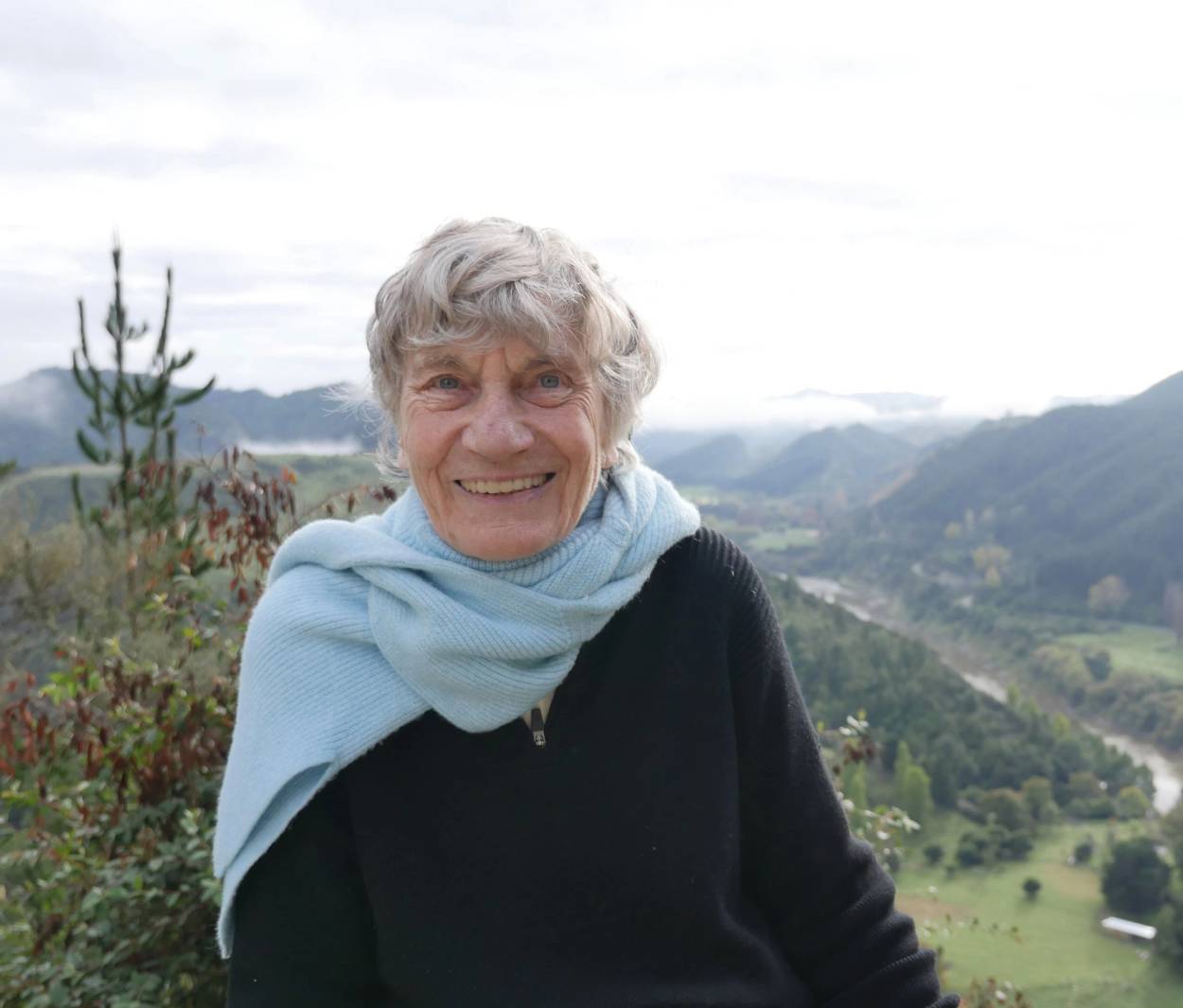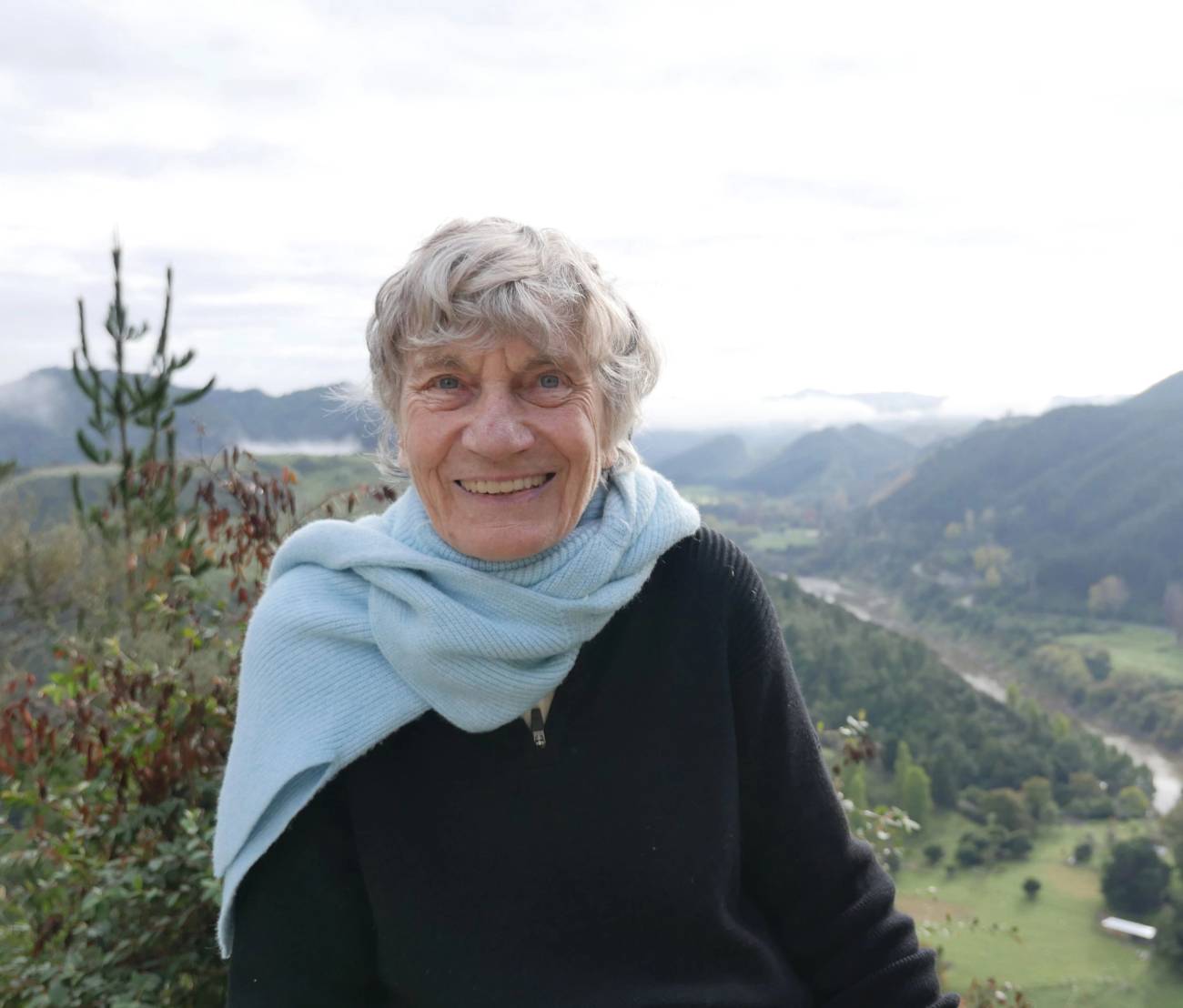Words as Shelter
Mireille Gansel’s new collection of poetry teaches us how to make ourselves at home in a broken world

Courtesy World Poetry Books

Courtesy World Poetry Books

Courtesy World Poetry Books

Courtesy World Poetry Books
Simple yet poignant, children’s questions can open many gates: storytelling, soul-searching, confusion, wonder. For a poet, such questions can inspire a book that perhaps contains all these elements, as is the case for Mireille Gansel, the French Jewish poet whose collection Maison d’âme, or Soul House, was recently published by World Poetry in Joan Sidney’s translation. Gansel’s opening poem, “to inhabit beauty,” begins with a child’s question, or to be more specific, as I later learned, a question posed to the poet by her youngest grandchild:
was it pretty your house, when you were little?
yes your child’s question this spring morning and suddenly beauty is a house one inhabits perhaps the first perhaps the only one—
against all odds—
It is immediately clear that the question hits a nerve: Gansel is a child of wartime refugees, who, during World War II, barely escaped Hungary when many others did not. She thus finds her grandson’s question complex and inspiring because, for a refugee, the question of a home and its beauty is bound with life-and-death matters of survival, belonging, resilience, faith, family history, and, in Gansel’s case, language. The poem sets the style and tone for the rest of the book. Lacking conventional punctuation and capitalization, Gansel’s poetry closely approximates speech, coming in a breathless rush of memories and images, abstract yet strikingly personal. Turning away from the direct answer, the poet immediately moves from historical or physical reality into metaphor, inverting the phrasing of the question and turning it on its head. Thus, “pretty house” becomes the idea of beauty itself as a house, or a home.
Now in her 80s, Gansel spoke to me over Skype from her apartment in Paris. The Hebrew word shekhinah, she reminded me, is one of the names used to describe the divine and means something like “habitation” in English. “There is a sacred dimension in that which we inhabit,” she said, before adding mysteriously and casually at once, “and then there is the inner house, inner language, something that doesn’t fully exist.” Gansel’s English is richly idiomatic and slightly confounding, saturated with French and German words, and Hebrew appearing sporadically as well. Compounded by our time difference and the blurry screen, it felt like Gansel spoke to me not from her Paris home but from another dimension or era. The world of Jewish artists I came to revere—poets Paul Celan and Nelly Sachs, novelist Aharon Appelfeld, violinist Yehudi Menuhin—do not belong to some remote or mythological canon, but are a vibrantly present part of the fabric of her life. Without a doubt, her own work belongs in the pantheon with these great artists, and so it is particularly bewildering that Soul House is the first volume of Gansel’s poetry translated into English—the only other translated work of hers is the memoir-essay collection Translation as Transhumance. In Europe, Gansel is widely recognized as both a writer and translator, and has received international recognitions, including the prestigious Prix Gérard de Nerval for her translation of Reiner Kunze’s poetry.
As we spoke, reflecting on Soul House’s opening question, Gansel offered:
“It’s so important for me to give an answer to a child which will help the child grow—and not to pile on things that are destructive. What if I answered with the actual truth—oh no, my house was not beautiful but a complete disaster, and for five years we had no house at all? I had to give this child something, so I had to answer ‘oh yes,’ and didn’t know what I was saying yes to. I remembered a house in Budapest … I remembered that in every place I lived, I put something sacred into it, something that touched on the meaning of life. Maybe this is what you can call maison d’âme, the soul house. A place where your inner self is happy, no matter what is happening outside.”
In other words, rather than traumatizing the child with unbearable history, or evading the truth altogether, the poet chose to reframe the question, and in that way to reach a deeper kind of a truth about what it means to possess a home. That home may just be found inside the language of poetry:
The poem like a soul house where a voice sang for you and spoke softly where there were silences of too much pain
The songs lodged most deeply within are those that were sung to us, in our homes, in our earliest days. For a refugee or survivor, in the gaping absence of a home and of those who sang for us, the song or a poem is all that remains, ensconced in our memory—a memory, that becomes sacred.
As we read poetry that originates in such experiences, we witness that which Gansel calls the poet’s “soul house,” and there, we may catch a glimpse of the depths of our own inner world, too. Indeed, as the poet put it in Translation as Transhumance: “that is what poetry is: a human voice that can save you.” In Gansel’s work, this sentiment does not seem to be an exaggeration, or self-aggrandizement. It is rather an observation: For those of us who carry diaspora and its traumas within, the human voice that reminds us of our most precious, nearly lost memories, can help walk us back from our darkest places, from forgetting, or erasing ourselves and our history.
‘The poem like a soul house where a voice sang for you and spoke softly where there were silences of too much pain’
Moreover, “a human voice that can save you” is Gansel’s ars poetica: The poems in Soul House do not rhyme, or have easy, uniform line breaks. There are memoir collages, shimmers of soliloquys and essays, straightforward or broken-up stories, lyricisms and surrealisms. And yet, all these bits come together to engender a human voice of an immense personal power. One such poem, “stones of light,” comes in a single exhale:
yes to start by the beauty of the world against all odds so from this first morning on the threshold of a long journey to meet the survivors of the Hungarian family and their descendants at the end of the night you opened your door to me your look and your skillful painter’s hands know to seize the smallest snapshots in the embrasures of life at first light you led us to see the sun rise over Jerusalem and every stone was made of light—
Like the book’s opening poem, this one also riffs on Souls House’s epigraph, taken from French philosopher Gaston Bachelard: “against all odds, the house invites to say: I will be a citizen of the world despite the world.” In “stones of light,” a whole journey takes place inside the poem—a physical journey as well as a spiritual one. As for the “odds,” that is what it takes to be a survivor, what it means to reunite with other survivors, to survive and become an artist. What it means to survive and witness the sunrise in Jerusalem.
Like many poems in the collection, this one is written in the second person. The addressee comes veiled—all we see of the person are the painterly hands. We learn more about this person through the metaphors of their home—the threshold, the door, the embrasures. Here, as in other poems, the “you” of the addressee, a specific but invisible person, may or may not be living, or may also perhaps be the reader, or an array of readers, or the poet herself. When I asked Gansel about this second person address, she pointed to Martin Buber’s theological treatise I and Thou as an influence, adding: “You exist if you are in relation—and not when you close your ‘I’ … I create a space where a person can enter [my poem] with their own question or story—instead of entering into my own little world, or my ego … I hate the enclosure in myself. I rarely use ‘je,’ and I am unhappy when I enter someone’s book and find myself in the ego of the author.”
For a refugee or survivor, in the gaping absence of a home and of those who sang for us, the song or a poem is all that remains, ensconced in our memory—a memory, that becomes sacred.
Although her work is personal, vulnerable, and pained, Gansel’s poetry is also wide open, and in a very particular way, which, I think, has something to do with her work as a translator. “Translation should make a work richer,” she said to me. Such perspective stands in sharp contrast with Robert Frost’s famous quip: “poetry is what gets lost in translation.” Rather than overromanticizing language or poetry, Gansel’s work is both grounded and far-reaching. As she writes in Translation as Transhumance: “In these times of solitude and solidarities: translation, a hand reaching from one shore to another where there is no bridge.”
When we discussed translation, Gansel recalled her conversation with the legendary Israeli writer-survivor Aharon Appelfeld. Once, she asked him whether he translated literature, and Appelfeld replied: “My writing is a translation from my inner language.” For a Holocaust survivor—specifically, one whose mother tongue was also the language of those who wanted to exterminate him—Appelfeld’s point feels particularly striking. Translation is the work of healing, of reconstructing the tiniest shards of the self. Such shards are made of words, or as Gansel would call them, “soul words.”
“Translation gave me words to help me find my own native language,” Gansel said to me. “What language do you write in? I would say the language of your pen and your soul … There were languages I needed to discover, like a mosaic, to find my own native language.” Her own understanding of the idea of langue natale, or native language, then, is that it is not something you are born with, but that which you come to construct, as you examine the history you find yourself inscribed in—your history, made of the many histories and languages of your ancestors. “It’s a language where you are born to yourself,” Gansel added.
I cannot pretend that I know exactly what it means to be “born to yourself,” but I do know that there are words that can carry you back to your childhood’s defining moments, those that, once rediscovered, feel transformative and sacred. And, perhaps, our path to those words and those memories is often revealed to us by children—our own, or those we feel close to. Recalling her experience as one of the very few children in a community of survivors, Gansel said: “Children are sacred … I was so loved and so considéré [respected, considered] in the world where there were no children.” It is not very surprising, then, that she received her grandchild’s question with such seriousness and consideration, love and responsibility—and that her response took the form of poetry.
As I reflected on our conversation in the days that followed, the historic and poetic distance from the world remembered by Gansel began to blur with my newsreels: After all, what has changed? Israeli children held hostage, Gazan children caught in the war, Ukrainian children abducted en masse to Russia, Russian children submerged in propaganda. Who will find the words they need? What can they possibly say? And in what language? The lines from Gansel’s “words as shelter” continue to reverberate in my mind:
Words the height of a child’s heart in front of the void—
words as shelter—
Jake Marmer is Tablet’s poetry critic. He is the author of Cosmic Diaspora (2020), The Neighbor Out of Sound (2018) and Jazz Talmud (2012). He has also released two jazz-klezmer-poetry records: Purple Tentacles of Thought and Desire (2020, with Cosmic Diaspora Trio), and Hermeneutic Stomp (2013).